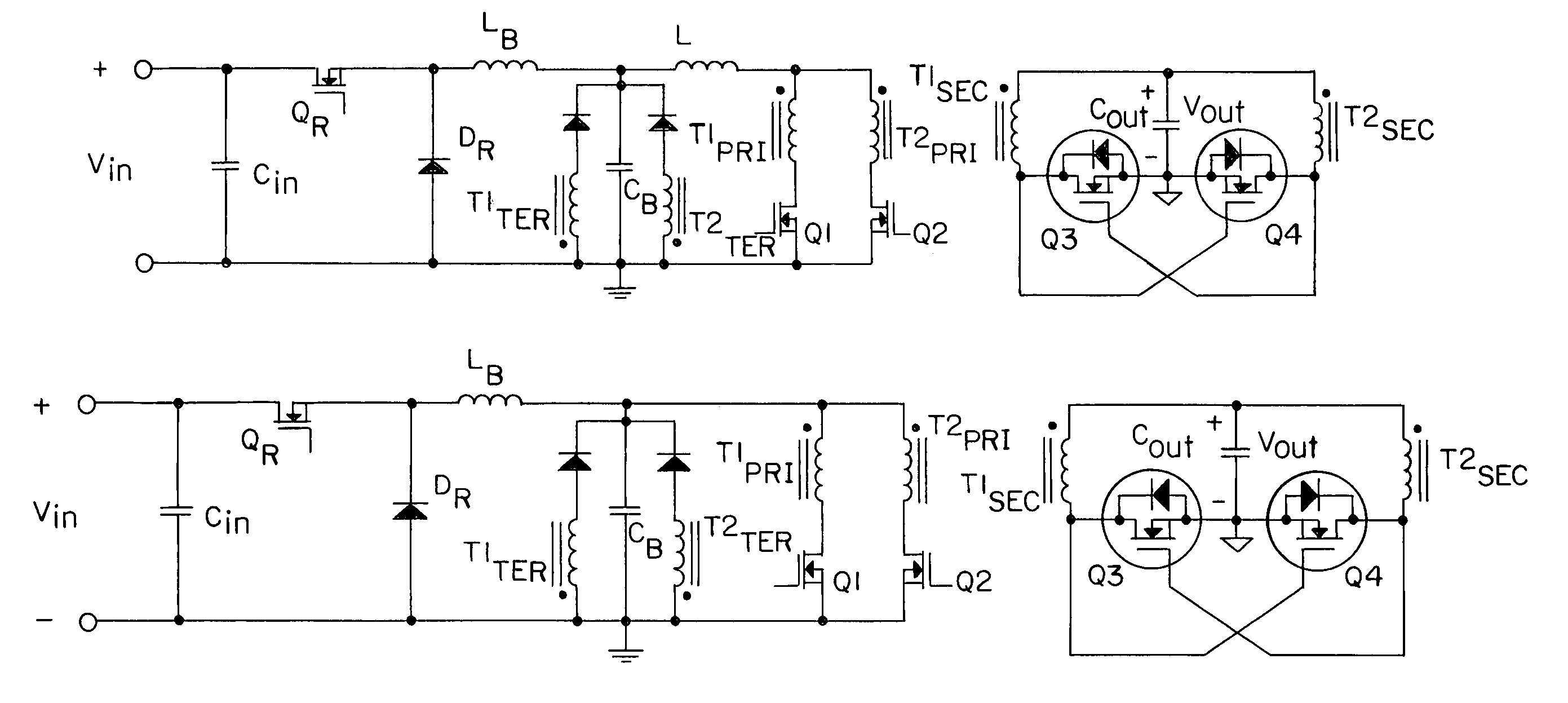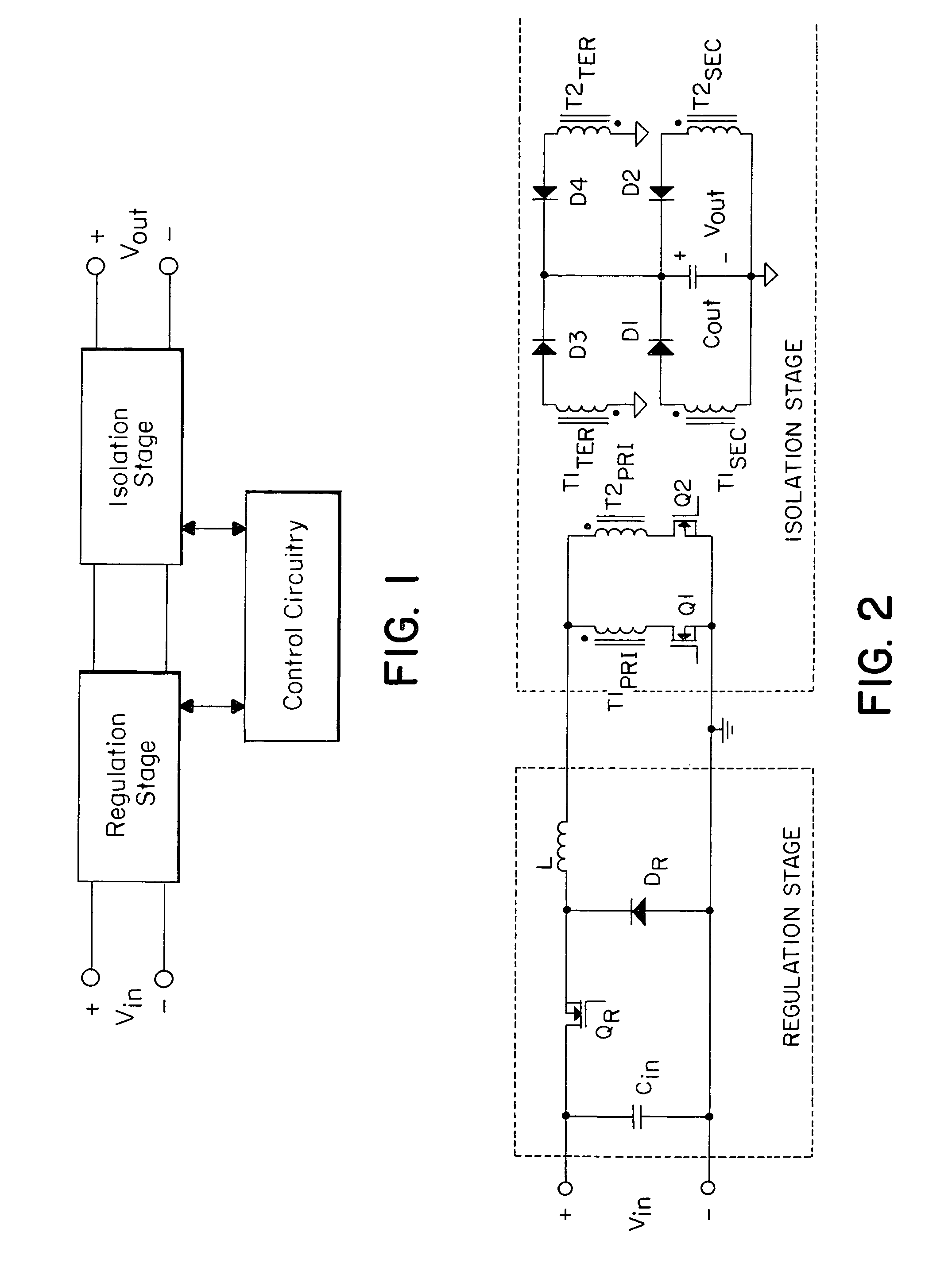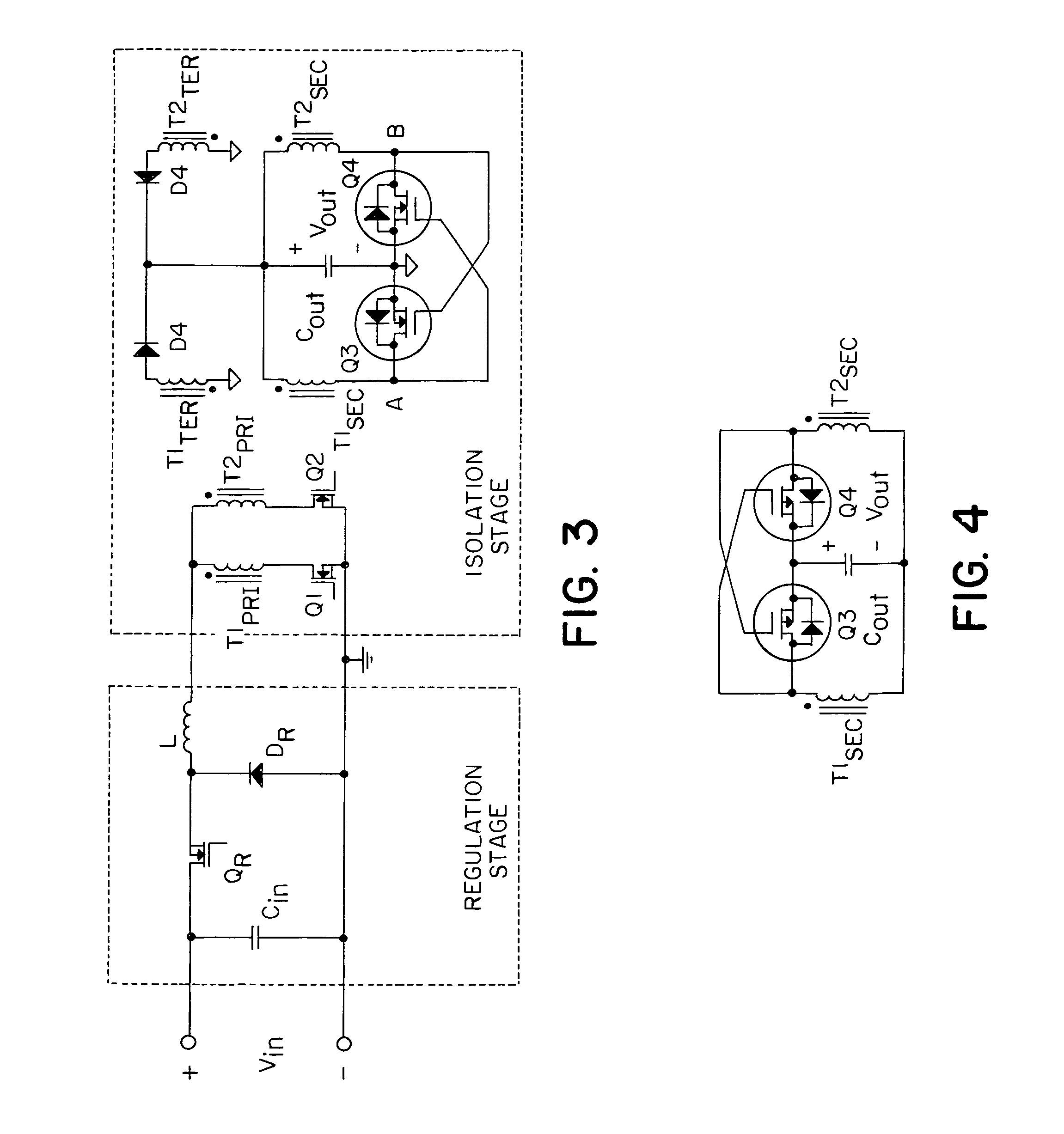High efficiency power converter
a power converter, high-efficiency technology, applied in the direction of electric variable regulation, process and machine control, instruments, etc., can solve the problem of complicated task
- Summary
- Abstract
- Description
- Claims
- Application Information
AI Technical Summary
Benefits of technology
Problems solved by technology
Method used
Image
Examples
Embodiment Construction
[0031]A description of preferred embodiments of the invention follows.
[0032]One embodiment of the invention described herein pertains to an electrically isolated DC-DC converter that might be used to deliver power at a low DC voltage (e.g. 5 volts) from a DC source such as a battery or a rectified utility. In such a converter a transformer is used to provide the electrical isolation and to provide a step-down (or step-up) in voltage level according to its turns-ratio. Switches in the form of power semiconductor transistors and diodes are used in conjunction with capacitors and inductors to create the conversion. A control circuit is typically included to provide the drive signals to the transistors' control terminals.
[0033]When the switching frequency is high (e.g. 100 kHz and above) it is typical today to use power MOSFETs and Schottky diodes for the converter's switches since these majority carrier devices can undergo faster switch transitions than minority carrier devices such as...
PUM
 Login to View More
Login to View More Abstract
Description
Claims
Application Information
 Login to View More
Login to View More - R&D
- Intellectual Property
- Life Sciences
- Materials
- Tech Scout
- Unparalleled Data Quality
- Higher Quality Content
- 60% Fewer Hallucinations
Browse by: Latest US Patents, China's latest patents, Technical Efficacy Thesaurus, Application Domain, Technology Topic, Popular Technical Reports.
© 2025 PatSnap. All rights reserved.Legal|Privacy policy|Modern Slavery Act Transparency Statement|Sitemap|About US| Contact US: help@patsnap.com



